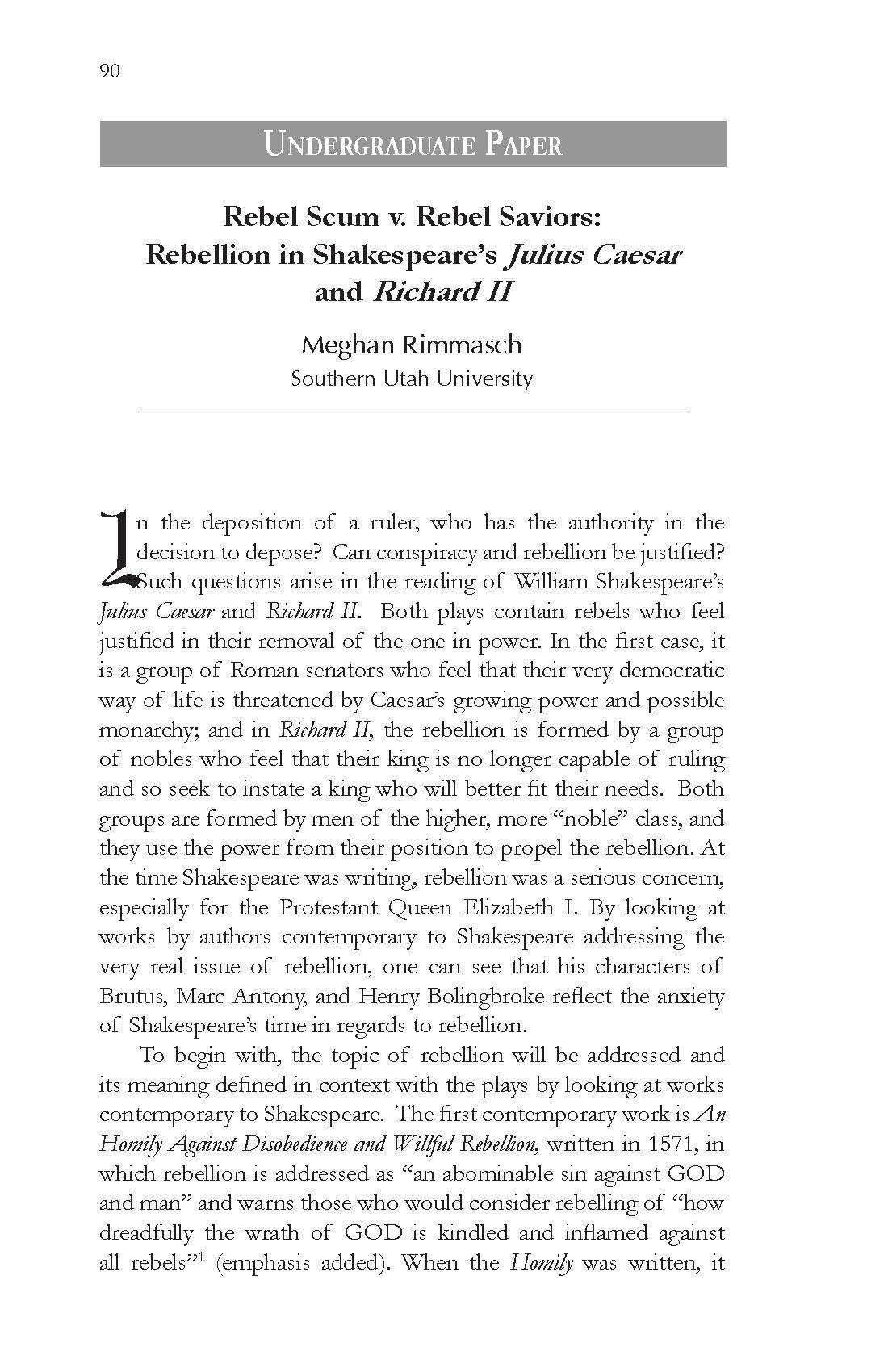Rebel Scum v. Rebel Saviors: Rebellion in Shakespeare’s Julius Caesar and Richard II
Main Article Content
Abstract
In the deposition of a ruler, who has the authority in the decision to depose? Can conspiracy and rebellion be justified? Such questions arise in the reading of William Shakespeare’s Julius Caesar and Richard II. Both plays contain rebels who feel justified in their removal of the one in power. In the first case, it is a group of Roman senators who feel that their very democratic way of life is threatened by Caesar’s growing power and possible monarchy; and in Richard II, the rebellion is formed by a group of nobles who feel that their king is no longer capable of ruling and so seek to instate a king who will better fit their needs. Both groups are formed by men of the higher, more “noble” class, and they use the power from their position to propel the rebellion. At the time Shakespeare was writing, rebellion was a serious concern, especially for the Protestant Queen Elizabeth I. By looking at works by authors contemporary to Shakespeare addressing the very real issue of rebellion, one can see that his characters of Brutus, Marc Antony, and Henry Bolingbroke reflect the anxiety of Shakespeare’s time in regards to rebellion.
